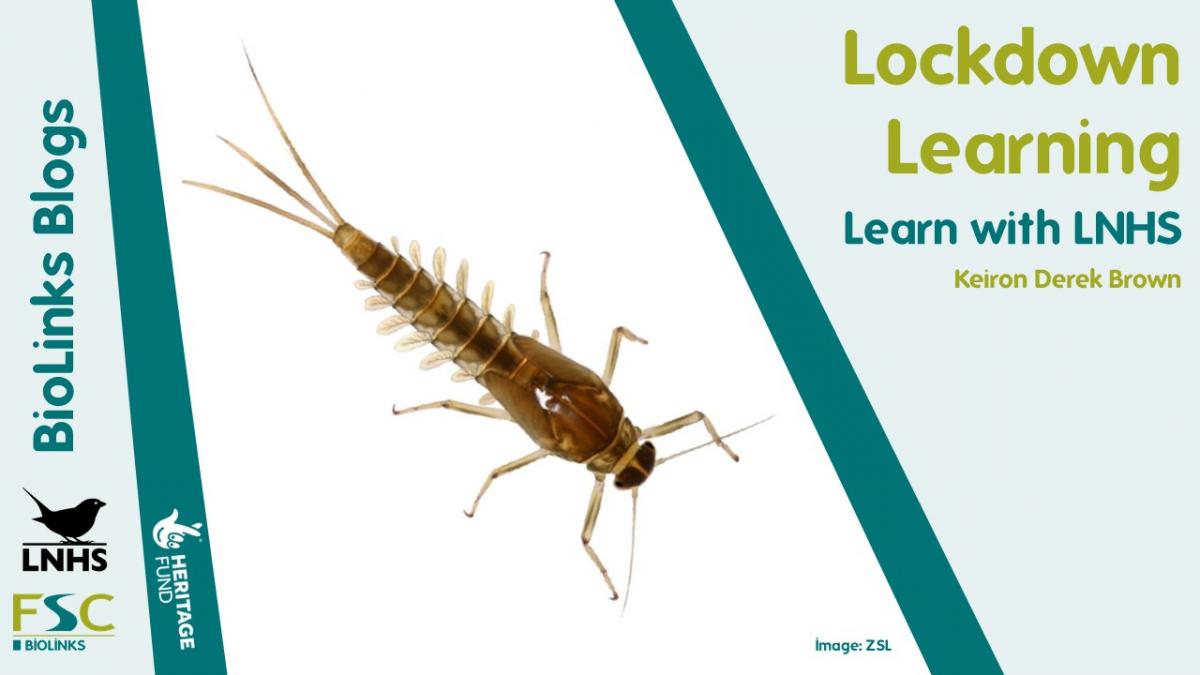Submitted by Anonymous (not verified) on Mon, 12/04/2021 - 11:16
 A Scottish gem
A Scottish gem
by Ross Poulton
The Aspen Hoverfly is a rare species of saproxcylic pollinator and a protected species of invertebrate. It is currently confined to Scotland, where the larvae will develop inside rotting pieces of old growth Aspen trees. To conserve this valuable pollinator, volunteers and researchers are enhancing the extent of this Hoverflys unique habitat.
Submitted by Anonymous (not verified) on Fri, 09/04/2021 - 08:46
 Preventing future invasions of ornamental plants
Preventing future invasions of ornamental plants
by April Webb
PlantAlert is a citizen science intiiative surveying horticultural taxa proliferating in gardens with the aim of identifying the potential future problematic plants that could escape to natural habitats and cause issues. Find out how you can help the project...
Submitted by k.brown on Mon, 05/04/2021 - 13:47
 Expanding our learning pathways beyond invertebrates...
Expanding our learning pathways beyond invertebrates...
by Clare Rooney
Clare Rooney is the Engagement & Training Manager for the new Eco-Skills training programme. In this blog, Clare tells us about what her team are working on and the exciting new training opportunitities are now available to book with the Field Studies Council.
Submitted by k.brown on Tue, 30/03/2021 - 17:30
 Get excited by the upcoming NFBR virtual conference!
Get excited by the upcoming NFBR virtual conference!
by Keiron Derek Brown
Wildlife recording isn't just important in honeypots, such as nature reserves. The urban world is a fascinating mosaic of habitats itself, and is where wildlife and humans interact the most. Keiron explains what the upcoming NFBR conference has to offer and why we should all be attending this virtual event.
Submitted by Anonymous (not verified) on Wed, 17/03/2021 - 09:08
 Learn how the new ID guide works...
Learn how the new ID guide works...
by Olga Sivell
Blow flies are important insects which have a fairly widespread distribution across the UK. A newly created Royal Entomological Society (RES) handbook & Key of British Blow flies created by Olga Sivell, provides an updated in-depth guide, with high quality diagnostic photographs, for anyone interested in identifying these fascinating flies!
Submitted by Simon Norman on Mon, 15/03/2021 - 14:02
 Meet the cast of the new ID guide...
Meet the cast of the new ID guide...
by Olga Sivell
Blow Flies are considered to be one of the most important groups of insects on earth for the role they play in decomposition. We have thousands of species of Fly in the UK and only several species of blow fly, some of which can be easily identified if you know where to look!
Submitted by k.brown on Mon, 15/03/2021 - 12:23
 Calling Berkshire naturalists...
Calling Berkshire naturalists...
by Caitlin Coombs
Are you a nature enthusiast? Do you have experience in species identification and wildlife surveys? Would you like the opportunity to visit protected sites, contribute to TVERC’s records, and play a role in the success of the Berkshire Local Wildlife Sites Project? You may be able to help us with survey work!
Submitted by Anonymous (not verified) on Wed, 24/02/2021 - 12:46
 When moth traps catch other animals...
When moth traps catch other animals...
by Dan Asaw
Moth trap intruders is a term given to any ‘non moth’ found in a light trap. The term Bicatch is thrown around a lot, but in reality these are absolute treasures to find. I’m a beetle guy at heart so I am always interested in the beetles that appear and some of them are incredibly hard to find without the help of a light trap.
Submitted by Anonymous (not verified) on Mon, 15/02/2021 - 12:57
 LNHS Goes Virtual
LNHS Goes Virtual
by Keiron Derek Brown
During late summer 2020, the LNHS decided that if we could no longer get people to come to field or indoor meetings due to COVID-19 restrictions, that we would bring our natural history offering people in their homes. From there, the LNHS Virtual Natural History Talks series was born.
Submitted by Anonymous (not verified) on Mon, 15/02/2021 - 12:29
 Teaching Biological Recording in a Pandemic
Teaching Biological Recording in a Pandemic
by Keiron Derek Brown
The FSC BioLinks project is designed to provide learning opportunities to help people develop their invertebrate identification and recording skills. We’re funded by the National Lottery Heritage Fund and Field Studies Council. Being a funded project, we’ve got a strict timescale, and specific goals in terms of delivering workshops and other training events to our target audiences. At the start of 2020 we were on track, with lots of events booked in for the coming year.
You know what happened next.
Pages